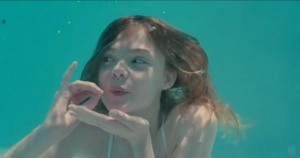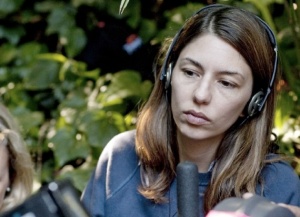Ian Fielding: Defending the Ending of Somewhere
Posted: January 23, 2011 Filed under: Cinema, Film Ache, Ian Fielding, Uncategorized | Tags: Elle Fanning, Film Ache, Ian Fielding, Scarlett Johansson, Sofia Coppola, Somewhere, Stephan Dorff, Wilby Park 8 CommentsMany critics have bemoaned the strained finale to Sofia Coppola’s Somewhere, Perhaps they are missing something. What? Let’s take a look at the film itself. The message is suggested: just because you’re rich and successful it doesn’t mean that you’re leading a fulfilling life. Then what sort of life? Our central character, Johnny, (Stephan Dorff) pursues his vices, drinks liberally, hires pole dancers to perform at the foot of his bed. He’s a Hollywood actor of some note and as such he fends of earnest acolytes, goes along with the occasional sexual advance and generally stumbles indifferently on a kind of drowsy autopilot through inane media questioning and sheets of flash photography. Salvation seems to arrive in the form of an unexpected visit from his daughter (Elle Fanning).
Johnny makes a casual success of his parenting. Although his successes seem to stem largely from leveraging his money and fame for effect rather than winning over his sceptical but supportive daughter with the nature of his character. Johnny summons guitarists to play for the pair of them and orders excessive amounts of ice cream. The portrait is at turns touching though, especially their playful exchange in the Chateau Marmont swimming pool.
So if Johnny is dead inside, what does he do to break from his impasse? He creates a drama in his life. He manufactures a crisis from a minor incident in order to feel alive again. He creates resistance within himself, the kind of resistance he fails to receive from the outside world.
Could this be why the ending of the film is a kind of masterstroke? The ending is forced, sentimental, unreal, a contrast to the gently natural series of observations we’ve been witness to. Then is it not just like Johnny’s own solution to his problem? He breaks through the ennui by forcing a classic Hollywood cliché upon himself.
If the ending is unsatisfactory it is because Johnny’s solution to his own problem is unsatisfactory. In a sort of Dr Phil, new age, LA quackery way he breaks through cheaply… but at least he breaks through? Sofia Coppola has discovered that redemption can be cheap. Remember the self help CD Scarlett Johansson was listening to in Lost in Translation?
My name’s Ian. I’m a writer and Filmmaker from London currently shooting my second feature film – a detective thriller called Dead Unicorns
To see pics, a trailer and what’s currently happening with Dead Unicorns click here:
http://deadunicornsfilm.wordpress.com
Follow FilmAche on Twitter



I know it was long ago you wrote this but I just re-watched the film and had my one take on the ending that is not dissimilar to your own.
First I want to point out another metaphor that was used in the film but not touched on and that is Johnny’s cast. At the beginning of the film he has a cast on for unknown reasons. He says he got it for performing his own stunts but we are skeptical of this explanation. Chloe then shows up and puts her name on it. This is her promise to cure him of this burden, the loneliness he feels. After spending a lot of time with Chloe, Johnny takes the cast off himself and presents it to Chloe, “you want to keep it as a souvenir”? She playfully says no after she sees how bad smells. This moment is Johnny ridding himself of the burden and allowing himself to feel. Chloe has taught him this.
The end is beauty to me. it starts with the late night phone call to Lala. This is a slip for Johnny. He can’t stand the loneliness he feels after Chloe leaves. She made him feel and now he’s desperate to feel something, even sex that he doesn’t really want with a person he doesn’t really like. If Lala had come over he would have slipped back into his bad habits. You then later see Johnny making a plate of pasta for himself. This is something that a man accustomed to room service would not have done before his catharsis. It’s the simple things in life that he is trying out that made him feel before with his daughter. He is trying to reconnect to this feeling. His check out of the Chateau is an obvious metaphor. Leaving the life behind that was so empty. He then leaves Hollywood, and then the greater Los Angeles. When he gets far enough away where there is no sign of the life he had in Los Angeles he leaves the last piece of that life behind, his Ferrari and walks away with a smile on his face. perfectly imperfect.
Fantastic – Bravo!
Great analysis!
Well said. I love this movie. I’ve watched it several times. Makes me sad though.
The secondary comment about the cast is so spot on. Went right over my head!
Also, I loved how you pointed out an interesting theme in Coppola’s work- “redemption is cheap”. It was very apparent in “Lost in Translation”, and I think, in modern every day life. Great article.
Thank you Courtney – glad you liked it.
terrible ending to an otherwise wonderful film.